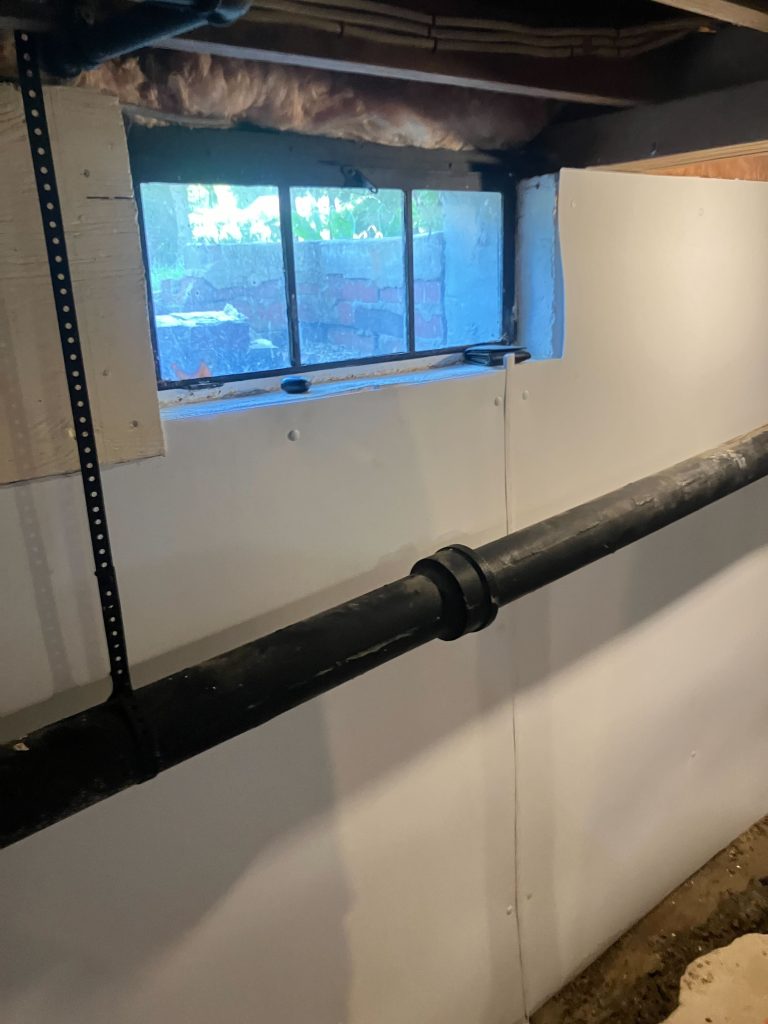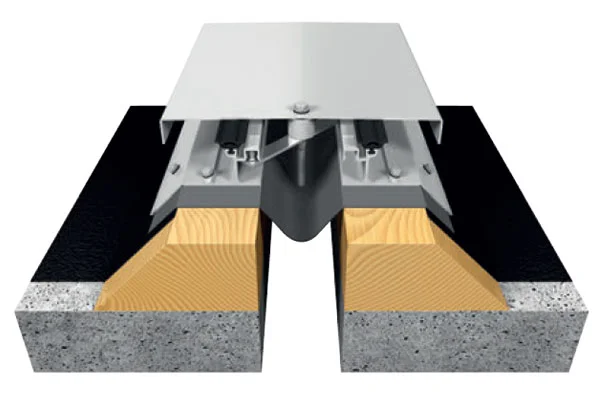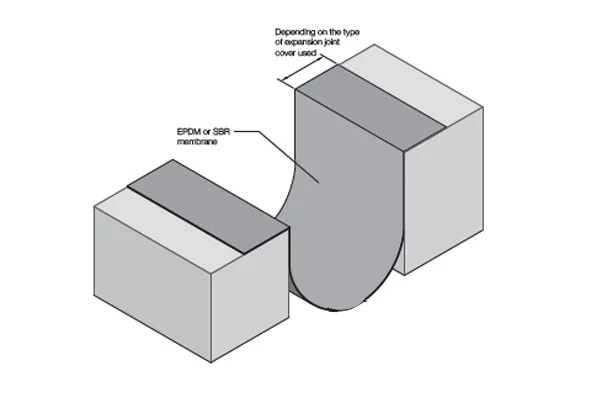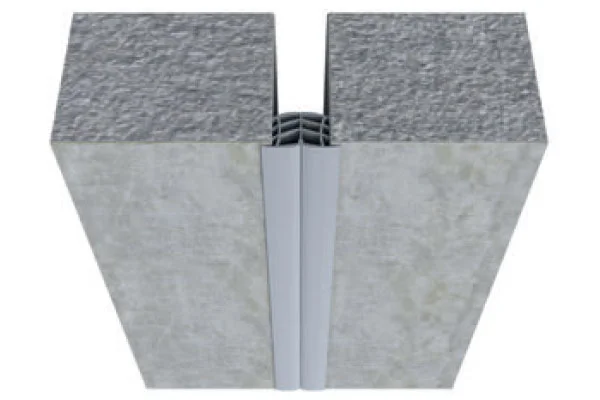

Key Takeaways
- Basement waterproofing can increase home value by nearly 10%, enhancing property appeal to potential buyers.
- Waterproofed basements signal proactive maintenance, receiving positive evaluations during home inspections and expediting the selling process.
- By preventing water-related issues, waterproofing provides potential homeowners peace of mind, increasing perceived home value.
- Waterproofing transforms basements into usable spaces like offices or gyms, boosting overall appeal in competitive real estate markets.
- Ignoring damp basements can lead to decreased resale potential and financial liabilities, emphasizing the value of initial waterproofing.
Understanding Basement Waterproofing
Basement waterproofing isn’t just a fancy term tossed around by home improvement experts. It’s a legitimate and necessary process that can save you from the nightmares of basement moisture.
Imagine walking downstairs to find your precious storage items, or worse, your finished basement, ruined by dampness. Not a pretty sight, is it?
So, what’s basement waterproofing? It’s a series of procedures aimed at preventing water from entering your basement. It involves sealing any potential entry points for water, installing drainage systems, and applying waterproofing compounds.
Now, you might be wondering, what’re the waterproofing benefits? Well, the list is extensive.
First, it prevents damages caused by basement moisture like mold growth and structural weakening, preserving the integrity of your home. It also improves your home’s air quality by reducing dampness and the risk of mold and mildew. Additionally, it can enhance the value of your home. Potential buyers are more likely to be interested in a house with a dry, usable basement than one with a damp, moldy one.
In short, understanding and investing in basement waterproofing is a wise move. It’s an essential step in maintaining the health and value of your home.
The Cost of Ignoring Damp Basements
Ignoring a damp basement can cost you more than you’d think.
Not only are you risking damage to your property, but you’re also exposing yourself to potential health hazards.
Let’s explore the financial and health implications of overlooking this vital home maintenance issue.
Potential Damage to Property
Overlooking a damp basement can lead to serious property damage and devaluation, a financial nightmare you wouldn’t want to face. This water damage isn’t just an aesthetic issue, it’s a ticking time bomb for your property depreciation.
- Moisture Control: Failing to control the moisture in your basement compromises the foundation integrity of your home. Over time, this can escalate to severe structural safety issues.
You’re not just risking your investment protection but the very stability of your home.
- Resale Potential: Ignoring water issues now can substantially decrease your home’s resale potential. Buyer concerns over damp basements are valid and prevalent, following market trends that prioritize well-maintained homes.
- Home Maintenance: Damp basements can become a constant drain on your home maintenance budget. The recurring cost of repairs can add up, negating any savings you thought you were making by not waterproofing your basement initially.
In essence, a damp basement isn’t just a minor inconvenience. If left unchecked, it becomes a financial and structural liability.
Protect your investment and maintain your home’s value by addressing this issue head-on.
Health Risks Involved
Your home’s damp basement isn’t just a threat to your property value, it’s an enemy to your health too.
It hosts a variety of health hazards that can affect you and your family. One of the most common and harmful is mold exposure. Mold thrives in damp, dark places, and a wet basement is an ideal breeding ground.
Exposure to mold can lead to a variety of respiratory issues, from mild allergies to severe asthma attacks. Symptoms may include sneezing, runny nose, red eyes, and skin rash.
In severe cases, it can lead to persistent coughing, wheezing, and shortness of breath. Mold can also trigger asthma episodes in individuals who’ve asthma.
Ignoring a damp basement isn’t just compromising your property safety; you’re also putting your health at risk.
It’s not just about increasing your home’s value through basement waterproofing; it’s about safeguarding your health.
Don’t ignore the cost of overlooking a damp basement. Act now, waterproof your basement, and protect your health and your home.
Basement Waterproofing Methods Explored
Diving into the world of basement waterproofing, you’ll find several methods at your disposal. Each technique is designed to protect your home from water damage, preserve your house’s structural integrity, and boost its resale value.
- Interior Drainage Systems: You’ll love how these systems catch basement water and channel it to a sump pump. You won’t have to worry about water pooling in your basement, ruining your belongings or causing mold growth.
- Exterior Sealing and Landscaping Techniques: These methods are all about prevention. Moisture barriers and exterior sealants protect from outside water, while thoughtful landscaping techniques keep water away from your foundation.
- Dehumidification Systems and Vapor Barriers: If you’re tired of damp, musty basements, these are your go-to. Dehumidifiers reduce moisture levels, while vapor barriers block dampness from seeping through your walls.
Don’t forget about additional measures like wall coatings and foundation repairs. These not only strengthen your basement’s defenses but also enhance the overall health and value of your home.
Preventing Structural Damage With Waterproofing
You might be wondering how waterproofing can prevent structural damage to your home.
It’s simple; by understanding the causes of structural damage, you can use waterproofing as a protective measure.
This not only guarantees the longevity of your home but also greatly boosts its overall property value.
Understanding Structural Damage Causes
Structural integrity, a vital aspect of any home, can often be compromised by the silent and insidious progression of water damage.
You might be unknowingly living on a ticking time bomb of foundation deterioration caused by moisture intrusion. Moisture, when it seeps into your home’s foundation, can lead to a host of problems that undermine its structural integrity.
Drainage issues, for instance, can cause soil erosion that weakens the stability of your home.
Moreover, the building materials of your home aren’t immune to the destructive effects of moisture intrusion. Over time, water can cause wood to rot, metal to rust, and concrete to crack. These issues don’t just affect the aesthetics of your home, but also its overall safety.
Let’s consider three key points:
- Foundation deterioration: Water damage can weaken the very foundation that supports your home, putting your safety at risk.
- Drainage issues and soil erosion: Poor drainage can lead to soil erosion, compromising your home’s stability.
- Damage to building materials: Moisture intrusion can harm various building materials, leading to costly repairs or replacements.
Understanding these potential causes of structural damage is the first step towards protecting your home and increasing its value.
Waterproofing: A Protective Measure
A significant number of homeowners overlook the importance of basement waterproofing, yet it’s a vital preventive measure against structural damage.
You may not realize it, but a damp basement can harm your home’s foundation over time. Moisture control is fundamental to maintaining the integrity of your home’s structure.
Waterproofing your basement isn’t just about keeping the area dry; it’s about safeguarding your investment. By sealing off potential entry points for water, you’re effectively shielding your home from potential damage. This precautionary measure can save you from expensive structural repairs down the line.
Moreover, basement waterproofing contributes to your home’s energy efficiency. When your basement is adequately waterproofed, it’s less likely to harbor dampness and cold air.
This means your heating system won’t work overtime trying to maintain a comfortable temperature in your home, leading to lower energy bills.
Increase in Property Value
It’s easy to underestimate the value of basement waterproofing when thinking about property value. However, you shouldn’t overlook the considerable impact it could have on your home’s worth.
Basement waterproofing is an investment that could greatly increase your property’s appeal, making it more attractive to potential buyers. This is particularly true in areas prone to flooding or dampness.
Waterproofing can protect your home from costly structural damage, such as cracks in the foundation or mold growth, which could dramatically decrease your property’s resale value.
Consider these three compelling reasons to invest in basement waterproofing:
- Prevention of structural damage: Keeping water out of your basement can save you the headache and expense of repairing structural damage in the future.
- Increased property appeal: A waterproofed basement reassures potential buyers that they won’t be dealing with water damage issues, making your property more appealing.
- Boosted resale value: By preventing potential damage and improving the appeal of your property, you’re increasing your chances of securing a higher resale value.
In the end, the upfront cost of waterproofing your basement could pay off in spades when it’s time to sell your home.
Waterproofing Impacts on Home Inspection
During a home inspection, any signs of basement water damage can send up red flags for potential buyers. It’s not just an aesthetic issue; it’s a signal of potential structural problems that could mean costly repairs down the line.
Remember, home inspection criteria are stringent and thorough, specifically designed to spot such issues.
When you’ve waterproofed your basement, it shows up positively on the report. It demonstrates that you’re a proactive homeowner who takes maintenance seriously, and that’s something buyers appreciate.
It alleviates their concerns about potential water-related issues, and they’re more likely to regard your home a good investment.
Buyer perception is heavily influenced by the state of your basement. A well-maintained, dry basement signals that the rest of your home is likely to be in good condition as well.
It suggests you’ve taken the time to guarantee your home is safe, secure, and built to last.
It’s these little details that can make or break a sale, so don’t underestimate the power of a waterproofed basement. It could be the difference between a quick sale and your home languishing on the market.
Increasing Your Home’s Marketability
Consider this: basement waterproofing can greatly boost your home’s marketability.
It’s not just about keeping your basement dry; it’s also about enhancing buyer perception. You’re not simply selling a house, you’re selling the idea of a secure, comfortable home. Waterproofing your basement can make a significant difference in how your property is perceived and valued.
Home staging is an important aspect of home selling, and a dry, well-maintained basement can become a strong selling point. It conveys the message that your property is well cared for and that potential issues have been addressed.
Here are three points to remember:
- A waterproof basement could be transformed into a usable space, such as a home office or gym, adding appeal to potential buyers.
- Waterproofing can also alleviate buyer concerns about potential mold, dampness, and structural issues.
- Finally, a waterproof basement indicates that you, as the homeowner, are proactive and meticulous about home maintenance.
In a competitive real estate market, every detail matters.
Basement waterproofing isn’t just a preventive measure; it’s an investment in your home’s marketability.
Potential ROI From Basement Waterproofing
Having understood how basement waterproofing can boost your home’s marketability, let’s explore its potential return on investment (ROI). The cost benefits are considerable when compared to potential damages.
Imagine the repair costs for structural damage or mold growth due to a leaky basement. You’re looking at thousands of dollars, easily dwarfing the upfront investment in waterproofing.
But it’s not just about avoiding costs. Basement waterproofing can also increase your home’s resale value. Prospective buyers see a waterproofed basement as a significant asset, and they’re often willing to pay a premium for it.
It’s hard to quantify exactly, but reports suggest that a waterproofed basement can increase a home’s value by almost 10%.
With these investment considerations in mind, it’s clear that basement waterproofing isn’t just an expense—it’s an investment. Like any good investment, it pays dividends over time.
You’ll save on repair costs, increase your home’s value, and enjoy peace of mind knowing that your basement is protected against water damage. So, consider the ROI potential when weighing the benefits of basement waterproofing.
Real Estate Perspective on Waterproof Basements
From a real estate standpoint, a waterproof basement is a major selling point. It aligns with current real estate trends, catering to market demand and home buyer preferences.
Imagine walking a prospective buyer through your home. They’re liking what they see, but when you proudly show them your waterproof basement, their interest clearly peaks. It’s a feature that sets your home apart, providing unique investment considerations.
Consider these three emotional triggers:
- Security: Waterproofing eliminates the worry of water damage, mold growth, and structural issues.
- Comfort: A dry, well-maintained basement provides extra usable space for relaxation or fun.
- Economy: With reduced maintenance costs, prospective buyers see more value in your home.
Through neighborhood comparisons and property appraisal, a waterproof basement greatly boosts your home’s resale value.
Buyer perceptions are shaped by this renovation impact, reflecting positively in a housing market analysis. It’s clear that basement waterproofing isn’t just a home improvement, it’s a strategic move to increase your home’s value.
Case Studies: Waterproofing Success Stories
In light of numerous success stories, let’s explore how waterproofing has worked wonders for homeowners. A considerable number of successful installations demonstrate the tangible benefits waterproofing brings to homes – and their owners’ wallets.
Consider John and Jane, a young couple from Seattle. They were battling constant basement flooding, which seeped into their living space, causing dampness and a persistent musty smell. After a professional waterproofing job, not only did their home become a healthier place to live, but they also saw a significant increase in their property’s value when they decided to sell.
Similarly, Mary, a retiree from Florida, was looking at a significant repair bill due to the moisture damage in her home. Waterproofing her basement not only halted the damage but also improved her home’s resale value, making her investment worthwhile.
These aren’t isolated examples. There are countless homeowner testimonials praising the financial and quality-of-life benefits of basement waterproofing. From preventing costly future repairs to increasing home value, waterproofing is a proven winner.
Frequently Asked Questions
What Are the Potential Health Risks Associated With a Damp Basement?
Yes, a damp basement can increase your risk of health issues.
Mold growth is common in moist environments and can negatively impact your home’s air quality. You’re more prone to respiratory problems, allergies, and asthmatic symptoms when exposed to mold.
Also, constant exposure to dampness can lead to skin irritations.
As a result, it’s essential to tackle dampness in your basement to protect your health.
Can I Perform Basement Waterproofing Myself or Do I Need Professional Help?
Sure, you can attempt DIY waterproofing, but it’s tricky work.
You’ll need proper tools and materials, and a good understanding of your home’s structure.
If you’re unsure, it’s safer to hire professional services. They’ve got the expertise to guarantee the job’s done right, preventing future water damage.
How Long Does the Process of Basement Waterproofing Typically Take?
Basement waterproofing duration largely depends on your home’s specific conditions and the method used.
Typically, it can take anywhere from a couple of days to a week.
Keep in mind, cost factors such as the severity of the water issue and the size of your basement can affect the project timeline.
You’ll need to factor these considerations into your planning.
It’s not a quick fix, but it’s definitely worth the effort.
Are There Any Specific Maintenance Tasks Required After Basement Waterproofing?
Yes, after basement waterproofing, you’ll need to perform specific maintenance tasks.
It’s important to regularly conduct post-waterproofing inspections to guarantee the system’s working properly. You should also monitor for moisture.
If you notice any dampness, it’s essential to address it immediately.
Remember, maintaining your waterproofing system not only protects your basement but also sustains the value of your home.
How Does Basement Waterproofing Affect My Homes Energy Efficiency?
Basement waterproofing can greatly improve your home’s energy efficiency.
By sealing cracks and gaps, you’re not just preventing water leaks, you’re also reducing air leaks. This means your home’s insulation benefits immensely, preventing heat loss in winter and keeping cool air in during summer.
So, you’ll see noticeable energy savings on your heating and cooling costs.
Waterproofing your basement is a smart move for enhancing energy efficiency.
Conclusion
So, can waterproofing your basement increase your home’s value? Absolutely. By preventing moisture issues and enhancing air quality, you’ll not only protect your home from potential damage, but you’ll also make it more appealing to buyers. With a potential value increase of up to 10%, it’s clear that waterproofing is a smart investment. Plus, buyers love knowing that a home is well cared for, boosting your home’s marketability. Don’t wait – waterproof your basement today!








